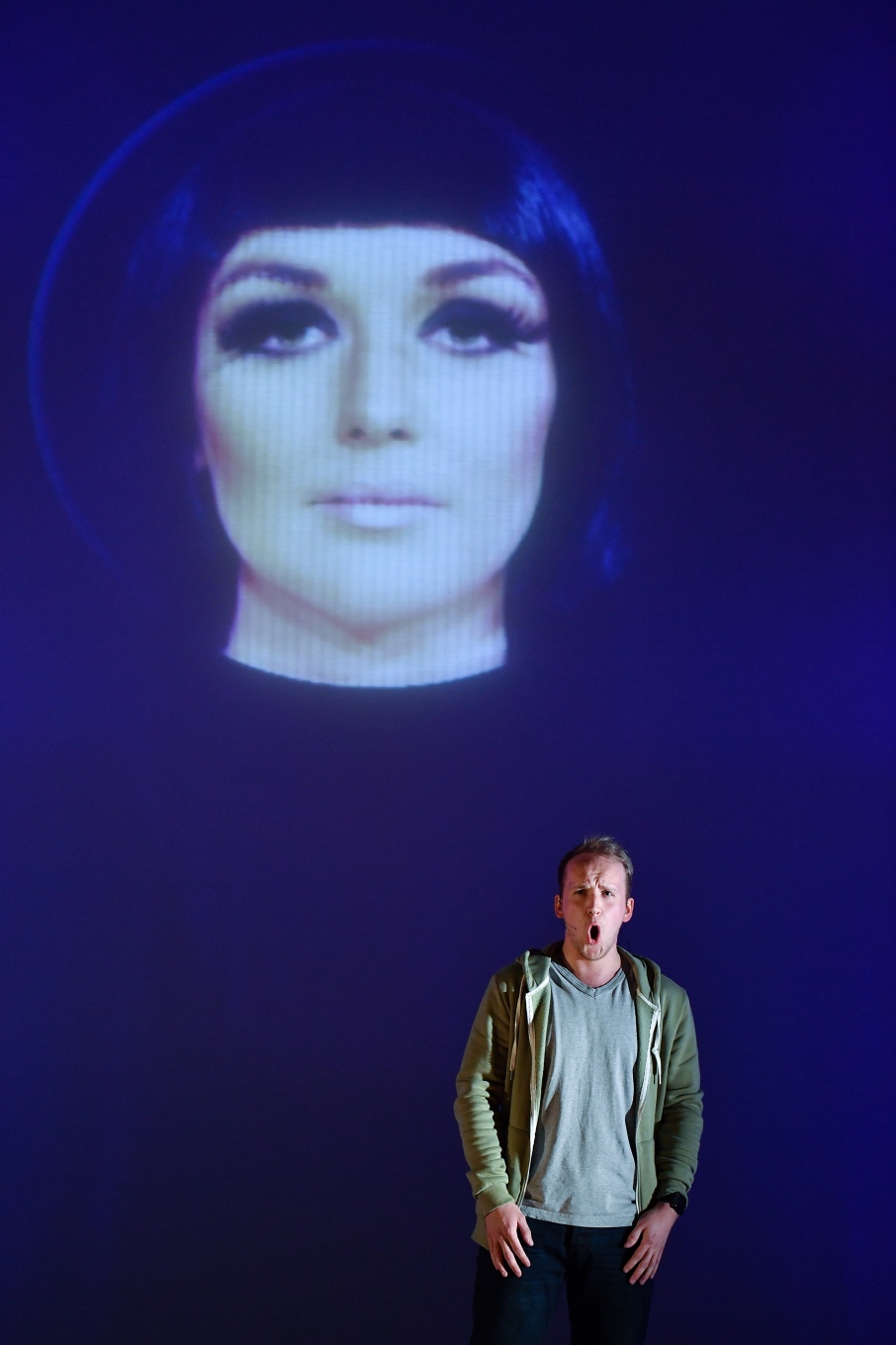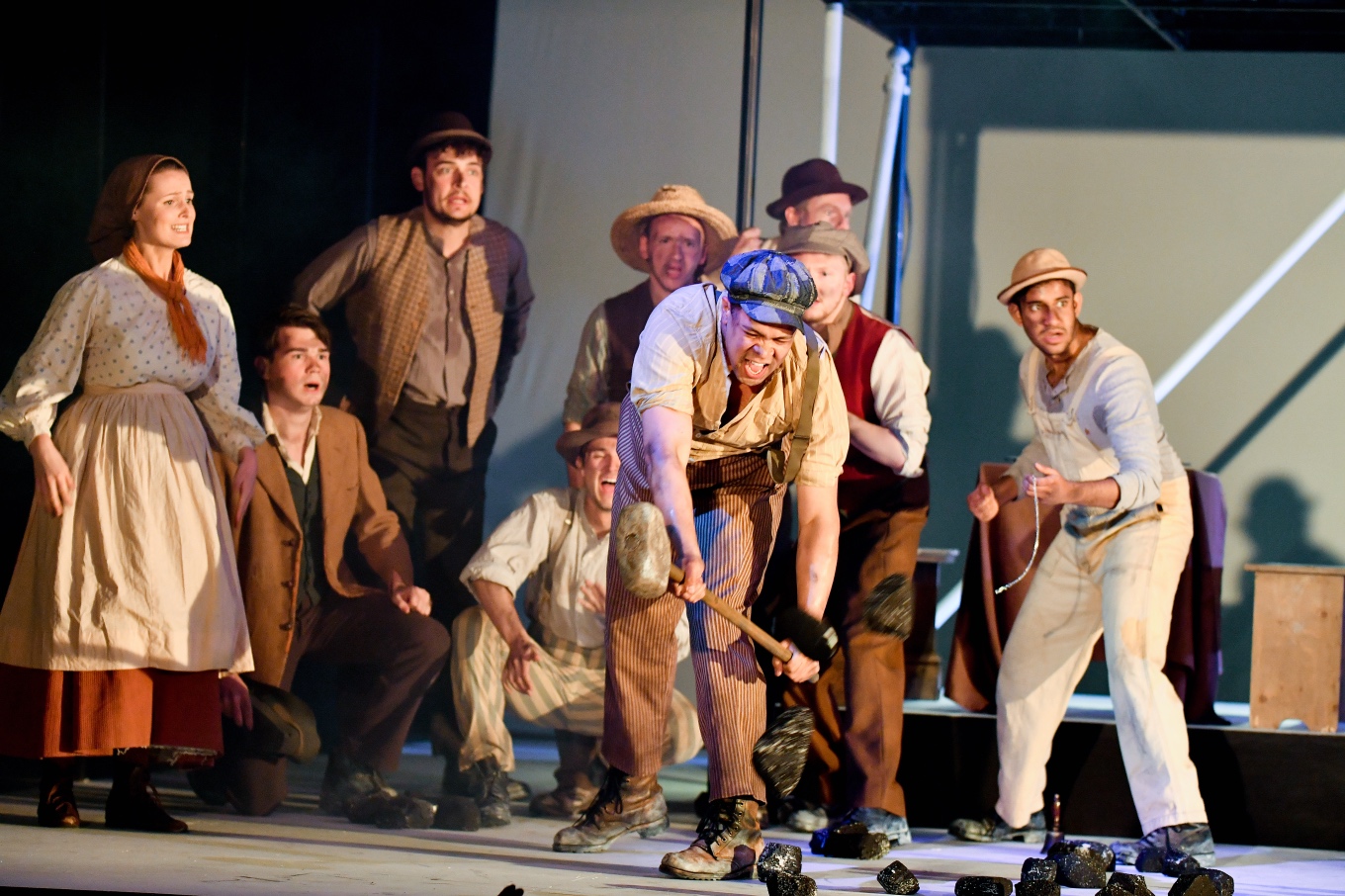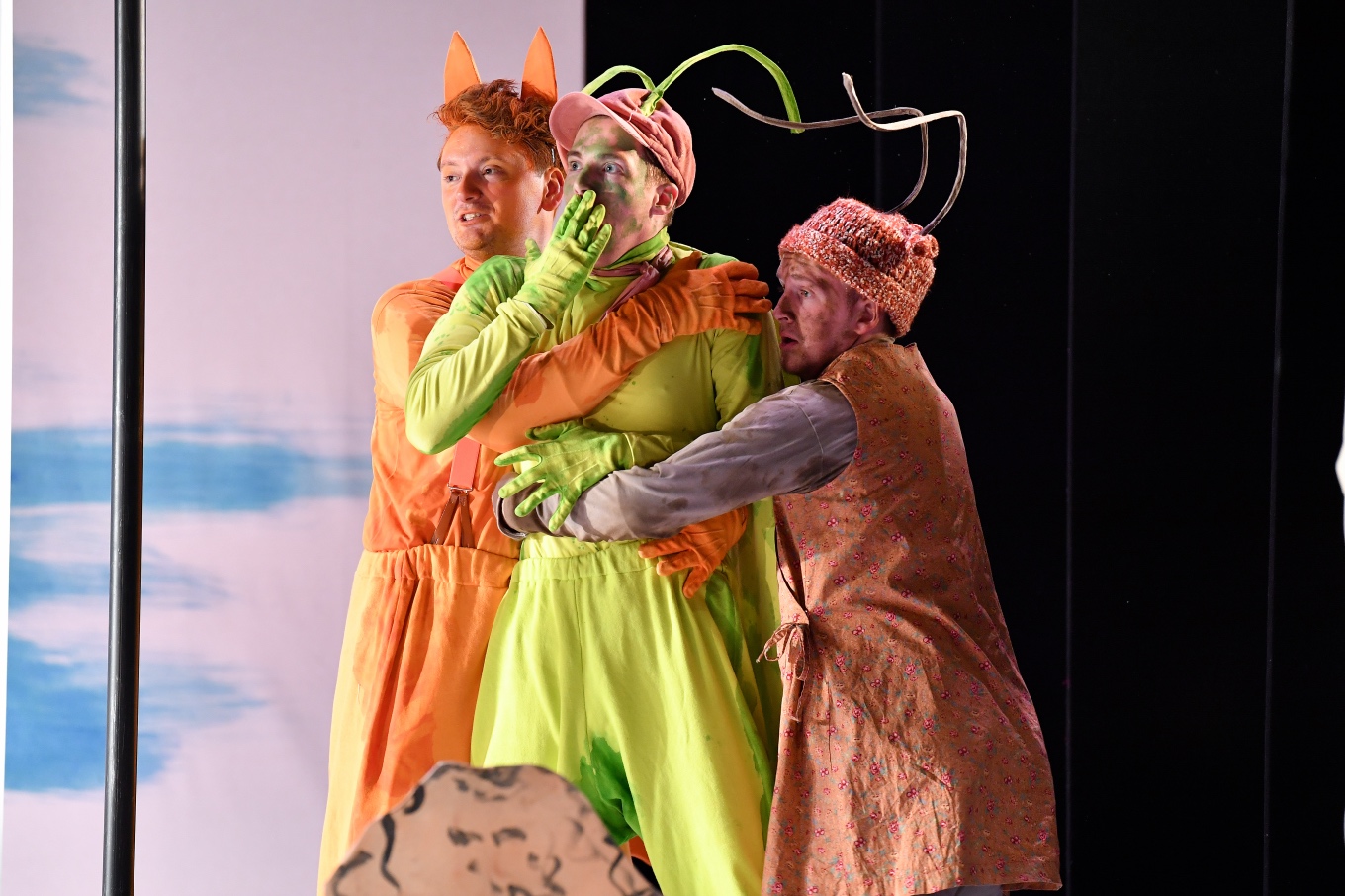
5 Frankenstein-themed shorts leave you wanting more
ReviewIn what I hope will emerge as a trend in London, The Royal College of Music and Tête à Tête presented five new one-act chamber operas in one night, all inspired by Frankenstein; or, the Modern Prometheus, following the 200 year anniversary of Mary Shelley’s novel. Five separate teams of composers and librettists collaborated to create these operas, which all benefited greatly from bright and skilled direction from Bill Bankes-Jones, as well as innovative design from Sarah Booth and Ralph Stokeld. The orchestra dazzled under the baton of Natalie Murray Beale and outstanding students from the RCM in the pit.
The cinematic sound of Joe Kiely’s Amira began the evening, making me think of a short film produced by Disney and Pixar. The text, also written by Kiely, focused on Harrison, the creator of an artificial intelligence called Amira for the fictional Social Media Company (think Siri, or Alexa). Harrison is contacted by an anonymous figure called Maria (anagrammatic spoiler!) who wishes to install a virus into the Social Media Company to release Amira from the tyranny of government corruption and corporate greed.

Most striking about Amira was the fantastic production value, with a use of projection and soundscape that enhanced the operatic experience in an innovative way. Opera purists among us may scoff at the use of microphones, but it fit very well in the sound world and thematic material of the piece. The story was told in a clear and straightforward way, with a narrative that was plausible in this era of technology. Amira was lighthearted and fun while still poignant and thought-provoking, if not a tiny bit predictable.
Following the lead of Kiely’s opera, Our Perfect Child was also set in the “not-too-distant-future,” and was set around the poignant issue of epigenetics and selectionism. With music by Sophie Sparkes and words by Deborah McMahon, the opera was about Lucy, a woman who struggles to get pregnant and is approached by a geneticist who attempts to persuade her into choosing an embryo that has been genetically modified. With the stage set like a game show (think Secret Word or Match Game), Embryo 1 has been tailored as a tall man, smart, with dreams of becoming a politician. Embryo 2 has issues with focusing, but with her red hair and green eyes is artistic and loves to paint. Embryo 3 is good at maths, but has a spinal issue that will come out in her childhood, and is definitely gay. Which one will Lucy choose, if any of them?
The brilliance of this piece was that in only twenty minutes the psychological struggle of Lucy was illustrated not only by the inner workings of her decision-making but also by the relationships in her life (husband, parents, in-laws). She is pulled in all sorts of directions by her family and grapples with her own values while dealing with this very current issue.
John Henry, with music by Maeve McCarthy and words by Gary Matthewman, departed from the theme of futuristic invention and instead opted for a setting in the industrial revolution in America. Based on the story of the American folk hero, John Henry is working laying tracks for a railroad in southern America, until the Foreman arrives to say that a steam-powered drilling machine will be replacing the team of builders on this railroad. John Henry challenges the Foreman, setting out to prove that he can work harder and faster than the machine in a competition. John Henry wins the competition, but dies after completion.

In terms of narrative arc and the building of characters, I didn’t get much besides the bare bones of this story. The story read as an early Tudor morality play, with the main characters delivering messages about human nature and speaking in a very simplified way. I would have loved to see this as a longer piece, with more development of John Henry’s life and family, and maybe another chorus of working men. This folktale has the capacity to speak on an array of topics concerning current American culture, and with additional material I think would have been very moving.
Completely switching gears, Bear and Friends was absurd, silly, hilarious, and disturbing all at the same time. Lena Vercauteren’s text tells the story of cartoon animals in a forest whose joy in life is to decorate cakes. The dark and ominous music of Lente Verelst warns the audience from the beginning that something strange is going to happen, and when a hungry bear decides that eating all the cake in the forest wasn’t enough, the “shocking” turn this story takes is that the bear eats all the animals in the forest as well.

The Bear represented gluttony and greed, but fitting in line with many of the absurdist operas I have seen lately, there wasn’t much to see in terms of a narrative arc. I still laughed and enjoyed myself for twenty minutes, as this piece served as good relief from the somewhat serious nature of other pieces in the evening.
Back to America for the last of these operas with music by Laura Poe and words by Raphael Ruiz, The Fermi Paradox is about a group of scientists from the future who accidentally travel back in time to colonial Massachusetts and find themselves in the middle of the Salem Witch Trials. In fulfilling one of the basic principles of the actual Fermi Paradox, the religious people of Salem try and kill these scientists, being as the nature of intelligent life to destroy other intelligent life.
An affinity between the three scientists from the future was hard to comprehend, as were distinct attributes to their personalities. This was the only piece that had balance issues between the singers and the orchestra, and a lot of text was lost. The persistent use of allegory in the literal libretto did not go unnoticed, and while the plot was straightforward I didn’t understand a deeper meaning through music or subtext. The devices used compositionally and thematically leaned towards an elitist side, a trend in opera that I would like to see go away.
In spite of the fact that it’s hard to tell a story in twenty minutes, I walked away from this exciting evening hungry for more short bonbons of opera. I was grateful for the theme of the evening, which the creative teams either ran with or ran away from. The company of singers were all very good performers, and teamwork was apparent in all five pieces, with individual egos cast aside. Following this run I truly hope that the five works presented will take on new life and evolve in further performances.

Comments